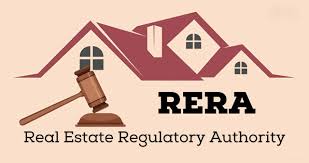RERA Act update

The year 2025 marks a significant turning point for the Real Estate (Regulation and Development) Act as sweeping updates and technological advancements reshape how the sector operates. These changes, including a centralized portal and tougher enforcement mechanisms, are designed to promote transparency, accountability, and consumer protection.
One of the biggest developments is the launch of a unified national RERA portal, aimed at consolidating data from all state-level RERA systems into a single, user-friendly platform. This portal allows homebuyers to easily verify project registration, builder credentials, approvals, and progress reports across states—eliminating the hassle of navigating multiple sites.
In a related move, the concept of RERA 2.0 has been introduced, embedding stronger compliance mechanisms into the Act. These include higher penalties for project delays, quarterly third-party audits of escrow accounts, and digitized complaint redressal systems—ensuring buyers are better protected and complications are flagged early.
Several state-level advancements also stand out. In Gujarat, notices are being issued to developers marketing projects prematurely—without RERA registration—and rules now require RERA numbers and QR codes on all promotional materials, including video and print ads. Violations can attract penalties of up to 5% of the project cost.
Meanwhile, in Telangana, RERA has ordered refunds with 11% interest for homebuyers affected by unregistered project delays, setting a strong precedent for enforcement even in non-RERA compliant cases.
In Rajasthan, RERA has introduced an e-auction model using MSTC for recovery from non-compliant developers. This initiative allows swift action under Section 40 of the Act and includes revised registration fees based on project type—residential, commercial, institutional, and farmhouses at different rates.
The Bombay High Court recently mandated that MahaRERA reinstates hybrid hearings—allowing parties to choose between physical or virtual appearances within four weeks—enhancing fairness and accessibility in grievance hearings.
Looking ahead, the central government is considering a comprehensive review of RERA after nearly eight years of implementation. The Housing Ministry has requested data from state RERAs on how effectively their orders are enforced, signaling possible amendments to empower authorities in order execution and ensure accountability.